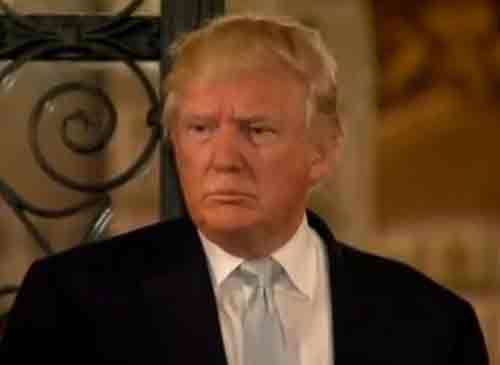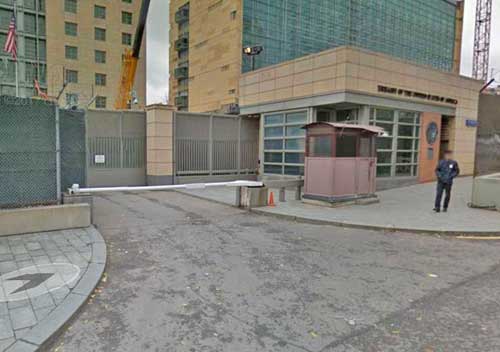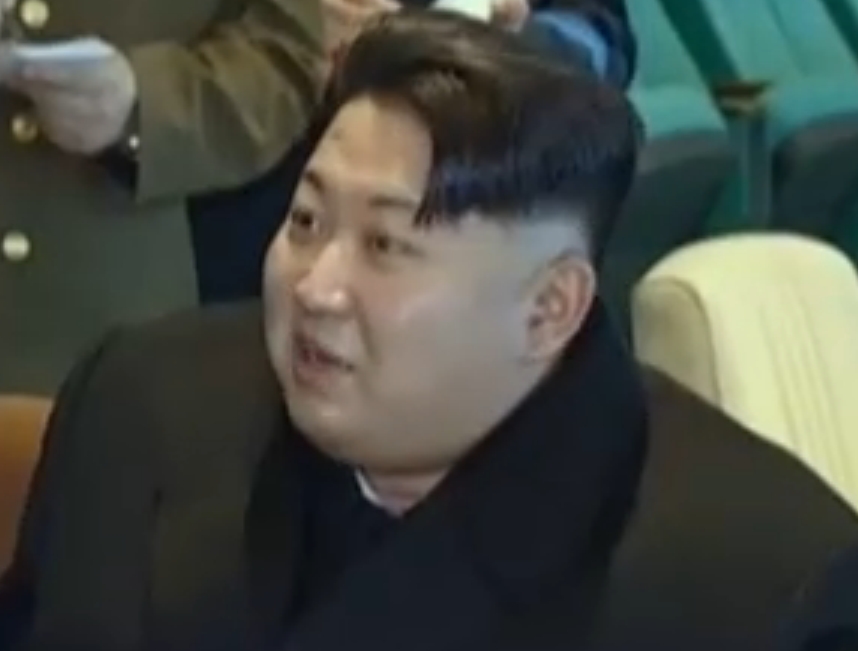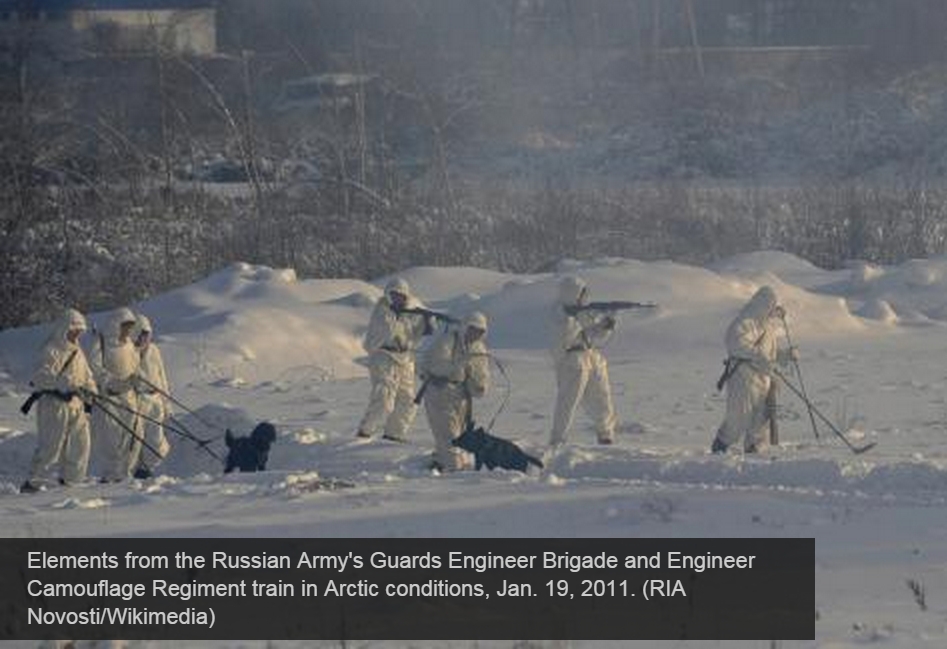
Russia’s foreign ministry said Friday it is imposing counter measures on the U.S. in response to new sanctions approved Thursday by Congress. The ministry said the sanctions confirm the “extreme aggression of U.S. in international affairs.”
“We propose to the U.S. side,” the ministry said, “to bring the number of diplomatic and technical staff working in the U.S. embassy in Moscow and the consulates general . . . in exact accordance with the number of Russian diplomats and technical staff in the U.S.” Russia said the reduction in force would bring the number of U.S. diplomats and staff to 455, and would need to be completed by the end of August.
In addition to the reduction in U.S. diplomatic personnel, Russia also said it would block the U.S. embassy in Russia from accessing its warehouses in Moscow and a vacation compound in Serebryany Bor.
“We also reserve the right to take other measures according to the principle of reciprocity, which may affect the interests of the United States,” the ministry said.
A State Department official said on background Friday, “We have received the Russian government notification. Ambassador [John F.] Tefft expressed his strong disappointment and protest.”
U.S. lawmakers approved a bill Thursday imposing new sanctions on not only Russia, but also Iran and North Korea.
Senators overwhelmingly approved the bill with a vote of 98-2, a day after the House and Senate agreed on the terms.
Republican Sen. Bob Corker announced the deal in a statement late Wednesday, saying it came after discussions with House Majority Leader Kevin McCarthy.
The House had already passed the bill with a vote of 419-3.
Corker had earlier objected to including the North Korean sanctions, initially favoring to address that issue in a separate bill. But he dropped those objections and said the House of Representatives would work on enhancing the North Korea language. Lawmakers pushed for more Russia sanctions in response to Russia’s meddling in the 2016 U.S. presidential election.
Russian President Vladimir Putin denies the charges and objects to the passage of new sanctions against his country.
The bill is designed to affect a wide range of Russian industries, hitting the country squarely in the pocketbook.
Presidential objections
Trump objects to the sanctions, but the bill has enough support in both houses to override a presidential veto. He particularly objects to a passage barring presidential interference aimed at easing the sanctions. The White House has been lobbying for weeks for a bill with a lighter impact.
The European Union has also expressed concern about the new sanctions, saying they could have an impact on the European energy sector.
During weeks of negotiations, the Trump administration pushed back at what it saw as attempt to limit the executive branch’s ability to unilaterally ease sanctions, making the case that it limits U.S. leverage in attempts to impact Russian behavior and build a better relationship with Putin. The White House has now expressed support.
“The president very much supports sanctions on those countries and wants to make sure that those remain. But at the same time, (he) wants to make sure that we get good deals. Those two things are both very important for the president,” White House deputy press secretary Sarah Huckabee Sanders told reporters on Monday.
Daniel Fried, an Obama-era official who coordinated the administration’s sanctions policy, told VOA he didn’t think the move by Congress to block Trump from altering sanctions would affect a bilateral settlement, but rather was meant to stop Trump from lifting the sanctions “for no good reason.”
“I think if there were a settlement and if this were generally acceptable to all the parties, including Ukraine, I think that Congress would not stand in the way of the administration lifting the Ukraine-related sanctions,” he said.
Bilateral tensions
According to state-run Russian media, Deputy Foreign Minister Sergei Ryabkov warned Wednesday the new sanctions will scuttle any chance of improved relations between Moscow and Washington. He also stated that Russia had previously warned the Trump administration it would mount a response if U.S. lawmakers passed the bill.
On Capitol Hill, lawmakers are already praising the group effort to pass the bill quickly. House Foreign Affairs Committee Chairman Ed Royce said in a statement: “I am pleased the Senate has acted overwhelmingly to give the administration much-needed economic and political leverage to address threats from Iran, Russia, and North Korea. This bipartisan bill is about keeping America safe, and I urge the president to sign it into law.”
Senator Mark Warner, chairman of the Senate Select Committee on Intelligence and a member of the Senate Banking Committee said, “This bill passed with overwhelming majorities in both the Senate and the House, sending a strong message to Vladimir Putin that attacks on our democracy will not be tolerated. President Trump should sign this bill as soon as it hits his desk. Otherwise, he risks encouraging Russia’s interference in future elections.”
VOA’s Michael Bowman and Katherine Gypson contributed to this report.
Source: VOA [xyz-ihs snippet=”Adsense-responsive”]







